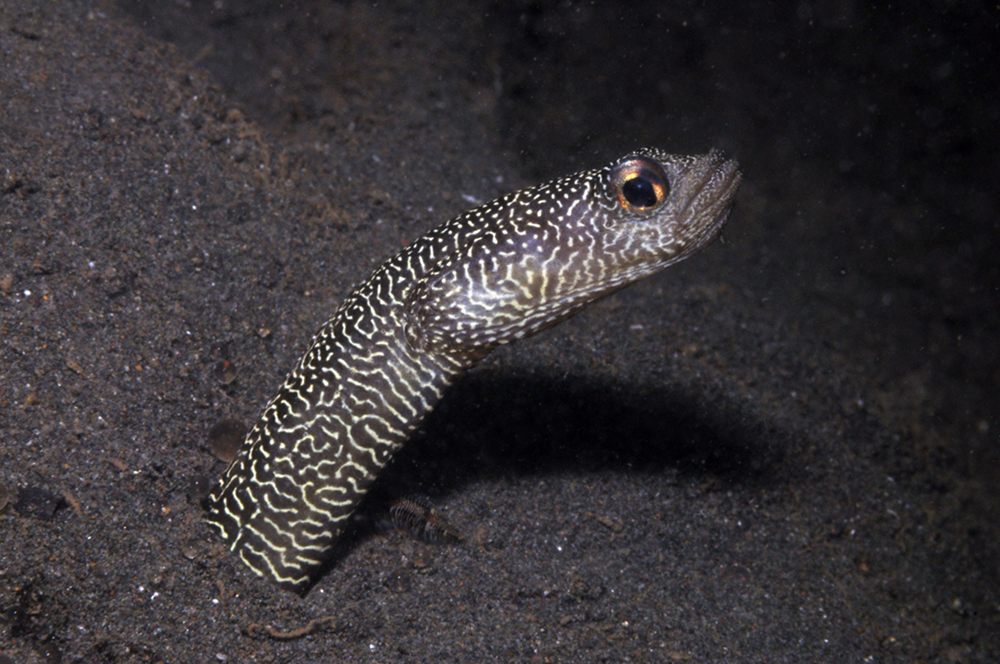Bali Coral Reefs Reveal Nine New Species

Get the world’s most fascinating discoveries delivered straight to your inbox.
You are now subscribed
Your newsletter sign-up was successful
Want to add more newsletters?

Delivered Daily
Daily Newsletter
Sign up for the latest discoveries, groundbreaking research and fascinating breakthroughs that impact you and the wider world direct to your inbox.

Once a week
Life's Little Mysteries
Feed your curiosity with an exclusive mystery every week, solved with science and delivered direct to your inbox before it's seen anywhere else.

Once a week
How It Works
Sign up to our free science & technology newsletter for your weekly fix of fascinating articles, quick quizzes, amazing images, and more

Delivered daily
Space.com Newsletter
Breaking space news, the latest updates on rocket launches, skywatching events and more!

Once a month
Watch This Space
Sign up to our monthly entertainment newsletter to keep up with all our coverage of the latest sci-fi and space movies, tv shows, games and books.

Once a week
Night Sky This Week
Discover this week's must-see night sky events, moon phases, and stunning astrophotos. Sign up for our skywatching newsletter and explore the universe with us!
Join the club
Get full access to premium articles, exclusive features and a growing list of member rewards.
A bubble coral that resembles underwater daisies and a decorated garden eel are among the nine potentially new species discovered in Bali's coral reefs, researchers just announced. The downside: The divers found few reef sharks, possibly signaling an unhealthy reef.
The nine species were found in the reefs outside of Bali, Indonesia, during a two-week survey, as a part of the Rapid Assessment Program (RAP), led by Conservation International. The surveys assessed reef health and will be used by the Indonesian government to decide which reefs should be identified as "Marine Protected Areas."
During the survey, researchers identified eight species of fish and one species of coral that hadn't been observed before. Among these potentially new species documented were two types of cardinalfish, two varieties of dottybacks, a garden eel, a sand perch, a fang blenny, a new species of goby and a previously unknown Euphyllia bubble coral (which resembles a patch of daisies). Researchers still need to confirm that these are new species, by comparing with known species. [See images of the new species ]
The new species were just a subset of all the life researchers have observed since 2008. They documented a total of 953 species of reef fish and 397 species of coral. The coral they observed was fairly healthy, with a seven-to-one ratio of live to dead coral.
"We carried out this present survey in 33 sites around Bali," Mark Erdmann, senior advisor for the CI Indonesia marine program, said in a statement. "There was a tremendous variety of habitats, surprisingly high levels of diversity and the coral reefs appeared to be in an active stage of recovery."
The reefs seem to be recovering but they are still in dire need of protection. A lack of sharks could be a bad sign, since they are an integral part of the healthy reefs. "This RAP survey highlights how important these Marine Protected Areas are," Erdmann said.
You can follow LiveScience staff writer Jennifer Welsh on Twitter @microbelover. Follow LiveScience for the latest in science news and discoveries on Twitter @livescience and on Facebook.
Get the world’s most fascinating discoveries delivered straight to your inbox.
Jennifer Welsh is a Connecticut-based science writer and editor and a regular contributor to Live Science. She also has several years of bench work in cancer research and anti-viral drug discovery under her belt. She has previously written for Science News, VerywellHealth, The Scientist, Discover Magazine, WIRED Science, and Business Insider.
 Live Science Plus
Live Science Plus











